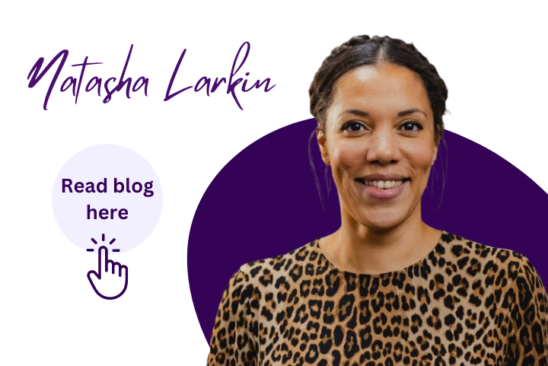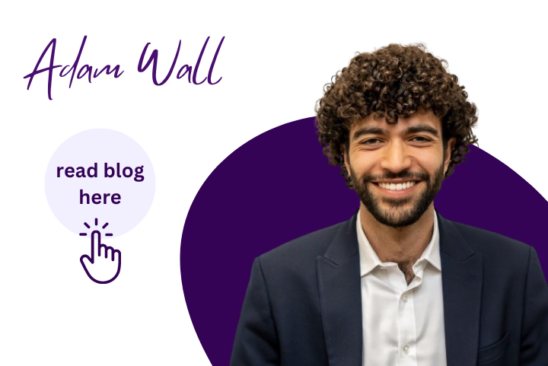Authors
It has been exactly five years since we launched the first How We Learn (HWL) training session for colleagues at PPL, as part of our (at the time!) new approach to learning and growing as an organisation.
In some ways it feels much longer ago and, in others, like only yesterday. Once I realised that is the anniversary, I found myself spending time reflecting on what we tried to achieve with HWL, and (in the spirit of HWL itself!) what worked and what hasn’t…yet!
The evolution of the PPL training offer
People ask why the training programme is called How We Learn, which creates the perfect opportunity to talk about what we have tried to create and why it is unusual and different. The first thing to say is that HWL is the second iteration of training and development at PPL. Prior to HWL we ran a Consultant Development Programme, which all Analysts and Consultants completed, and which covered all the key skills required to be a consultant. There was nothing wrong with the Consultant Development Programme – it did a really good job of training people which meant that, when we created HWL, we weren’t trying to fix a problem with training. We wanted to reframe learning itself and to find a way to embed a culture of learning deep into the DNA of our organisation.
The reality is that you can’t learn to be a good consultant in a classroom. Training is key and skills development is an essential part of growing as a consultant, but truly great consultants are a product of taking that training and applying it in the real world and learning what works and how to use their training to achieve the results their clients want.
Finding inspiration in the ‘growth mindset’
In 2018 we first came across the work of Carol Dweck and her team at Stanford. We were inspired by the idea of the ‘growth mindset’ – the power of learning as an open, incomplete process, one that acknowledges that it is an active collaboration between the teacher and the learner with rights and responsibilities on both sides. Above all, we knew that all of us had learnt as much from the mistakes we had made in life than the things that worked amazingly first time Creating the space for people to bring the way they learn in life into their professional identity in an environment of safety was likely to create a very different team, capable of achieving very different outcomes. We took Dweck’s work and worked through how to apply it within PPL. There were some radical ideas that came out of this process which we now see as completely normal, but which felt very risky at the time.
The foundations of the ‘growth mindset’
- Prioritising time for development at all levels across the team consistently and protecting that time.
- Creating a culture of psychological safety where people are allowed to learn from their mistakes and those of others (our ‘we all make mistakes, let’s keep it interesting by trying not to make the same ones twice’ mantra!)
- Recognising the importance of the ‘stick of rock’ principle – there is no point telling people to feel psychologically safe if the management culture around them doesn’t reflect and enhance that reality all the time, so we needed to make sure that ours did.
Making the ‘growth mindset’ our business as usual
1. Outlining the rules of the game
Firstly, we agreed that there would be one whole team training day available to everyone for ten months of the year. Attendance would be compulsory for analysts and strongly encouraged for everyone else. The core concept was that you should aim to complete each module at least three times – once in theory, again with experience of applying what you had learnt the first time, and then again as an expert by experience to support colleagues. We believe strongly that you can never attend the same course twice because, even if nothing else changes, you should have been changed by the experience of applying the learning over the past year. We also believe that learning is not just something that happens during training, and that focusing on How We (each) Learn in the literal sense, is how we can support each other to be the best we can all be professionally.
2. Making learning a professional (and personal) journey
Next, we reframed the concept of learning as being a personal opportunity and responsibility, which should be happening all the time, not simply during training. We talk in our induction (which is a mini version of HWL to get people started!) about our ambition that the time people spend at PPL should be the most enriching of their career. This is not just because they will have the best colleagues and work on the best projects (although we hope that is the case!) but also because we will support and challenge them to understand how they personally learn and grow, to take responsibility for their development, and not to shy away from things they find difficult or mistakes they have made but instead to embrace these as rich areas for growth and learning.
3. Being comfortable with discomfort
This approach to learning is not a soft one. It is easier and more comfortable to avoid our mistakes and weaker areas because of the (understandable) feelings they provoke in us. Understanding that, we strive to create an environment of real psychological safety, where we acknowledge that none of us are perfect, that we are all learning all the time, and that we can expect to do so without judgement or criticism. In the spirit of the ambition, I don’t think any of us would argue that we get it right all the time. I do think we try harder and succeed to a greater extent than many other places.
4. Reframing our management culture
Finally, we reframed our management culture to support and prioritise this way of learning. People Managers work with their teams to identify areas for growth and development. Time for development is prioritised and the skill of learning – so learning about client challenges and complex problems rather than repeating textbook answers – is one that we recognise and value as being the heart of really excellent consultancy support.
Learning doesn’t stop there
I think we have done well. Where I see room for development is in making sure that we bring the same passion for learning to the start of every group beginning the course. It’s easy to slip into this just being a language we all speak and understand but we need to remind people regularly what it really means.
We also offer additional training in more specialist areas. This includes our two-day Management Development programme for new managers, which we run in partnership with The Management Centre, our coaching and Prince 2 / Agile project management training which is delivered externally, and even more specialist senior leadership development. We haven’t (yet!) fully integrated these elements into the philosophy of HWL and that fees like an exciting next step. Finally, we were proud to have our training certified by the CMI in 2019 and we recognise that, in the spirit of sharing the journey, there is a great opportunity to share this model much wider than just our team.
Building a community – a catalyst for learning
Building a community around this way of growing and nurturing talent within an organisation is one of our key objectives for the future. Whilst we obviously see our team as the best out there, we are also practical and generous enough to recognise that, especially in our field of public sector transformation, the more thoughtful, developed, resilient and skilled consultants there are to solve complex problems, the better.
If you would like to learn more about what we do and how we do it, please contact our head of Organisational Development, Natasha Larkin. Natasha has led to development of How We Learn throughout this five-year period and has been passionate about ensuring that the core objectives and values that shaped our ambition sit at the heart of everything we do as a team. I am passionate about learning and I am so grateful to be continuously growing in my own role and career. We have a great team because we allow them the space to become the best they can be. Learning how to do that has been one of my proudest professional achievements.
If you only read one thing, download the short summary.





